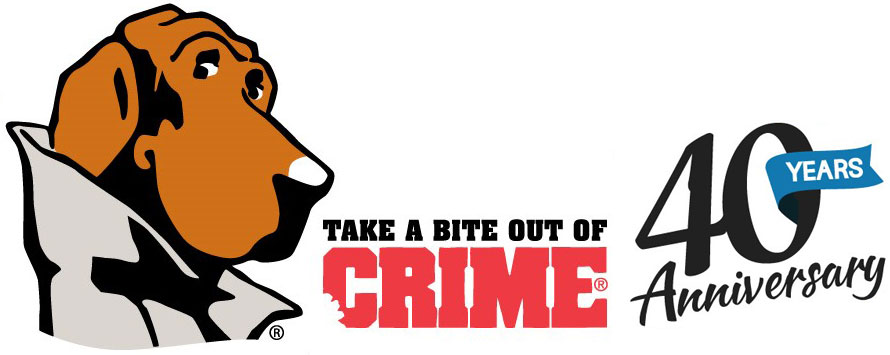Hate divides communities. Hate can lead to crime and violence in schools, places of worship, and local communities. According to the Federal Bureau of Investigation’s Uniform Crime Reporting program, in 2012, 1,730 law enforcement agencies reported 5,796 hate crime incidents involving 6,718 offenses. Nearly half of these incidents were racially motivated but many also included sexual-orientation, religious, ethnicity or national origin, and disability bias. The majority of these offenses were directed against persons (59.1 percent). Students, parents, businesses, law enforcement, and the community all play a role in preventing hate crimes and building cohesive communities that are safe for all.
NCPC Resources
Print Tools
Delete cyberbullying! Don’t write it! Don’t forward it! Who is at risk for cyberbullying? What is cyberbullying? How do we prevent it? Answers to these questions are explained in detail in this online newspaper.
Cyberbullying Prevention: Working Together: Educators, school administrators, victim service providers, law enforcement, and even students should be involved in cyberbullying prevention.
Cyberbullying Reproducible and Localizable Outreach Tools: These tools can be localized by law enforcement and crime prevention practitioners to teach kids how to prevent and respond to cyberbullying (available in palm card, flier, and poster sizes).
Video/Audio
Click here to watch NIOT’s Webinar — Raise Your Voice to Stop Hate: Ideas and Lessons from Not In Our Town.
When the Going Gets Scruff: McGruff the Crime Dog® and his nephew Scruff work together to prevent bullying at school. Great for kids, educators, parents, law enforcement, and crime prevention practitioners, this animated short video is a fun way to open discussions about respect and bullying.
Illuminate Cyberbullying: Cyberbullying is common in today’s society. This PSA is designed to bring this crime into the light to raise awareness.
Guides
Social Media and Cyberbullying: Keep information and personal details safe on the internet. Go through this checklist to be sure your online safety is optimized.
Educators Preventing Cyberbullying: This resource provides 10 tips for preventing cyberbullying in schools.
Outreach to Underserved Teen Victims of Crime: Chart a Course for Expanding Victim Services to Youth – This guide on projects and resources is aimed toward helping underserved teen victims of crime. Along with this Case Study Guide, this resource provides helpful examples of how to reach specific youth populations with crime prevention messages and strategies.
2010-2011 NCPC Crime Prevention Month Kit – The Circle of Respect: Are You In It? – Respect should be an integral part of every relationship. This toolkit focuses on promoting respect in interpersonal relationships to prevent crimes like sexual harassment and bullying.
2011-2012 Crime Prevention Month Kit- Young, Savvy, & Safe: Are You Ready? This Crime Prevention Month Kit helps teens and young adults keep themselves safe from crime as they navigate their first apartment, online, traveling alone, and more.
Partner Resources
Not In Our Town is a movement to stop hate, address bullying, and build safe, inclusive communities for all. Not In Our Town organizing tools, films, and new media help local leaders build vibrant, diverse cities and towns, where everyone can participate.
Guides and Tools
Parent Guide To Preventing and Addressing Bullying and Intolerance: Not In Our Town’s Free Guide will help you help your child. Whether they barely see their friends or are “feeling sick” more frequently, your child is probably experiencing bullying and taunting. Dealing with it is a delicate and complex procedure. The Not In Our School Parent Guide highlights what you should do when your child is a victim of bullying.
Quick Start Guide: How To Launch a Not In Our School Campaign: This FREE guide will help you mobilize students to be “upstanders” who take action to stand up for another and create a climate that reflects the values of safety, respect, and inclusion.
Working Together for Safe, Inclusive Communities – This initiative, presented in collaboration with the U.S. Department of Justice COPS Office, provides films, resources, and case studies to help law enforcement and community partners work together to prevent, report and respond to hate crimes.
Not In Our Town Quick Start Guide – This guide provides steps for starting your own local Not In Our Town campaign, and features ideas from communities across the country that are standing up to intolerance.
Not In Our School (NIOS) Quick Start Guide – This guide offers ideas educators can use to incorporate NIOS across the curriculum, 10 steps to get NIOS started in schools, and tips for starting a NIOS student club.
Take the Not In Our Town Pledge!
A pledge can bring your friends, families, and neighbors together to help create a community of acceptance and respect. Download the Not In Our Town pledge, and learn about successful pledge campaigns from across the country.
Learn How Your Town Can Be a Gold Star City: Is your town making a lasting commitment to safety, respect, and diversity? Learn about Not In Our Town’s new Gold Star Cities campaign, which recognizes and certifies cities and towns that are taking proactive steps to prevent hate, intolerance, and bullying; and to promote diverse civic participation.
Video/Audio
Waking in Oak Creek (30:00), presented by Not In Our Town and the U.S. Department of Justice COPS Office, dramatically reveals the courageous police and community actions that took place after the 2012 shootings at the Sikh Temple of Wisconsin. The film comes with a community viewing guide and educator lesson plan. DVD copies of the film are available free to the public (including law enforcement agencies, community groups, schools, civic leaders, etc.) for trainings, workshops, community screenings and discussions, and other activities, via this link: http://www.niot.org/cops/wakinginoakcreek.
For more information or assistance organizing a NIOT community event or agency training, please contact Michelle Gahee Kloss, Director of Community Engagement, at mgkloss@niot.org or 510-268-9675.


